Related Research Articles

The Jewish Theological Seminary (JTS) is a Conservative Jewish education organization in New York City, New York. It is one of the academic and spiritual centers of Conservative Judaism and a major center for academic scholarship in Jewish studies. The Jewish Theological Seminary Library is one of the most significant collections of Judaica in the world.
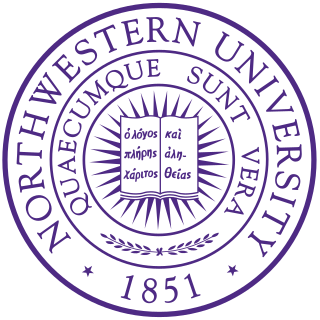
Northwestern University is a private research university in Evanston, Illinois. Founded in 1851, Northwestern is the oldest chartered university in Illinois and is ranked among the most prestigious academic institutions in the world.

John Witherspoon was a Scottish American Presbyterian minister, educator, farmer, slaveholder, and a Founding Father of the United States. Witherspoon embraced the concepts of Scottish common sense realism, and while president of the College of New Jersey became an influential figure in the development of the United States' national character. Politically active, Witherspoon was a delegate from New Jersey to the Second Continental Congress and a signatory to the July 4, 1776, Declaration of Independence. He was the only active clergyman and the only college president to sign the Declaration. Later, he signed the Articles of Confederation and supported ratification of the Constitution of the United States.

The Fulbright Program, including the Fulbright–Hays Program, is one of several United States Cultural Exchange Programs with the goal to improve intercultural relations, cultural diplomacy, and intercultural competence between the people of the United States and other countries through the exchange of persons, knowledge, and skills. Via the program, competitively-selected American citizens including students, scholars, teachers, professionals, scientists, and artists may receive scholarships or grants to study, conduct research, teach, or exercise their talents abroad; and citizens of other countries may qualify to do the same in the United States. The program was founded by United States Senator J. William Fulbright in 1946 and is considered to be one of the most widely recognized and prestigious scholarships in the world. The program provides approximately 8,000 grants annually – roughly 1,600 to U.S. students, 1,200 to U.S. scholars, 4,000 to foreign students, 900 to foreign visiting scholars, and several hundred to teachers and professionals.

Morehouse College is a private historically black men's liberal arts college in Atlanta, Georgia. Anchored by its main campus of 61 acres (25 ha) near downtown Atlanta, the college has a variety of residential dorms and academic buildings east of Ashview Heights. Along with Spelman College, Clark Atlanta University, and the Morehouse School of Medicine, the college is a member of the Atlanta University Center consortium. Founded by William Jefferson White in 1867 in response to the liberation of enslaved African-Americans following the American Civil War, Morehouse adopted a seminary university model and stressed religious instruction in the Baptist tradition. Throughout the late 1800s and early 1900s, the college experienced rapid albeit financially unstable institutional growth by establishing a liberal arts curriculum. The three-decade tenure of Benjamin Mays during the mid-20th century led to strengthened finances, an enrollment boom, and increased academic competitiveness. The college has played a key role in the development of the civil rights movement and racial equality in the United States.

The Pontifical Institute of Mediaeval Studies (PIMS) is a research institute in the University of Toronto that is dedicated to advanced studies in the culture of the Middle Ages.
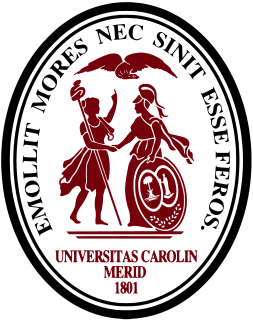
The University of South Carolina is a public research university in Columbia, South Carolina. It has seven satellite campuses throughout the state and its main campus covers over 359 acres (145 ha) in downtown Columbia not far from the South Carolina State House. The university is classified among "R1: Doctoral Universities with Highest Research Activity". It also houses the largest collection of Robert Burns and Scottish literature materials outside Scotland, and the world's largest Ernest Hemingway collection.
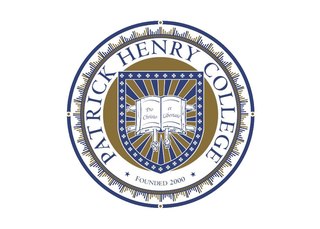
Patrick Henry College (PHC) is a private liberal arts non-denominational conservative Christian college located in Purcellville, Virginia. Its departments teach classical liberal arts, government, strategic intelligence in national security, economics and business analytics, history, journalism, environmental science and stewardship, and literature. The Commission on Colleges of the Southern Association of Colleges and Schools (SACS-COC) fully accredits as of 2022. Patrick Henry College continues to be accredited by the Transnational Association of Christian Colleges and Schools (TRACS), which is also recognized as an institutional accreditor by the United States Department of Education. Its graduation rate is 67%.
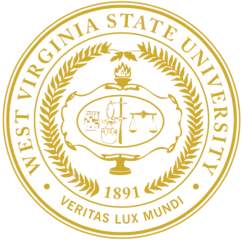
West Virginia State University (WVSU) is a public historically black, land-grant university in Institute, West Virginia. Founded in 1891 as the West Virginia Colored Institute, it is one of the original 19 land-grant colleges and universities established by the second Morrill Act of 1890, which evolved as a diverse and inclusive campus. Following desegregation, WVSU's student population slowly became more white than black. As of 2017, WVSU's student body was 75% white and only 8% African-American.

Milligan University is a private Christian university in Milligan College, Tennessee. Founded in 1866 as the Buffalo Male and Female Institute, and known as Milligan College from 1881 to May 2020, the school has a student population of more than 1,300 students, most of whom reside and study on its 355-acre (1.44 km2) campus. Milligan University is historically related to the Restoration Movement, with about 25% of the student body coming from the three main branches of that movement. The university offers over 100 programs of study leading to both undergraduate and graduate degrees.

Tusculum University is a private Presbyterian university with its main campus in Tusculum, Tennessee. It is Tennessee's first university and the 28th-oldest operating college in the United States.

Trinity Evangelical Divinity School (TEDS) is an academic divinity school founded in 1897 and located in the northern Chicago suburb of Deerfield, Illinois. It is part of and located on the main campus of Trinity International University. Trinity is regarded as being one of the world’s top institutions for theological higher education out of hundreds of divinity schools, seminaries and Bible institutes. It’s among the most conservative and largest theological educational institutions. Since the reorganization of Trinity in 1963 by Kenneth Kantzer, the school has consistently recruited and retained some of the top scholars in the world to serve as faculty.

Richard Louis "Dixie" Walker was an American scholar, author, and former ambassador to South Korea.
Princeton University was founded in Elizabeth, New Jersey, in 1746 as the College of New Jersey, shortly before moving into the newly built Nassau Hall in Princeton. In 1783, for about four months Nassau Hall hosted the United States Congress, and many of the students went on to become leaders of the young republic.

Harvard University is a private Ivy League research university in Cambridge, Massachusetts. Founded in 1636 as Harvard College and named for its first benefactor, the Puritan clergyman John Harvard, it is the oldest institution of higher learning in the United States and one of the most prestigious and highly rated in the world.
The Starr Center for the Study of the American Experience is an institute at Washington College, in Chestertown, Maryland, that promotes the research and study of American history and culture. Founded in 2000, the Starr Center at Washington College is one of many educational initiatives funded by the Starr Foundation, a private foundation with assets of over $1.25 billion. The inaugural director of the Starr Center, Edward L. Widmer, served under Bill Clinton as special assistant to the president for national security affairs; among other accomplishments, he wrote foreign policy speeches and advised the president on topics related to history and scholarship as senior advisor to the president for special projects. Since 2006, Adam Goodheart, a historian, journalist and author of 1861: The Civil War Awakening, has served as director of the Center. In addition to its academic components, the C.V. Starr Center works closely with external groups to sponsor events of public interest, such as the Poplar Grove Project, a recovery and recordation project in collaboration with the Maryland State Archives, and hosts readings and lectures often focused on topics of local interest, such as Chesapeake Bay history.

John Witherspoon College is a non-denominational Christian liberal arts college in Rapid City, South Dakota. The college was founded in 2012 and named after the pastor, scholar and American Founding Father John Witherspoon. The college was created to serve both a local need for Christian higher education in the Black Hills and the broader interest for classic liberal-arts education in America.
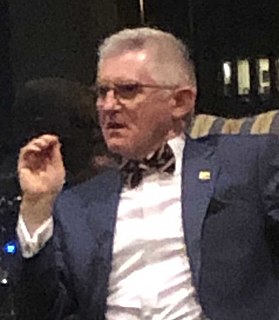
Patrick G. O’Shea is an Irish-American scientist and academic. From February 2017 to September 2020, he was the fifteenth president of University College Cork. He was previously vice president and chief research officer at the University of Maryland.